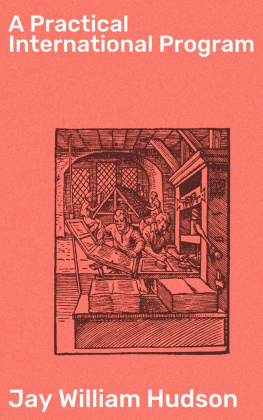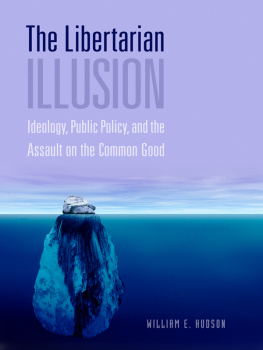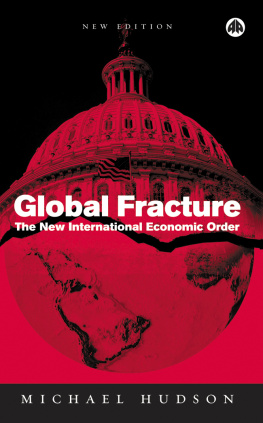A Practical International Program
Table of Contents
THE MASSACHUSETTS PEACE SOCIETY A PRACTICAL INTERNATIONAL PROGRAM BY JAY WILLIAM HUDSON Professor of Philosophy, University of Missouri Director Education Department, Massachusetts Peace Societ* THE MASSACHUSETTS PEACE SOCIETY
A PRACTICAL INTERNATIONAL PROGRAM
I
THE European war has awakened the world to a new consciousness. It is becoming increasingly apparent that the enlightened peoples of all countries are almost unanimous in their condemnation of the continuance of the war system as a means of settling international disputes. But the mere condemnation of the war system is not enough. It must be directed forcibly to the attainment of certain specific ends: otherwise, public opinion will simply spend itself in an effervescence of futile generalities which will accomplish little of practical import.
One of the most interesting things in connection with this public opinion against war is the way in which it has gradually formulated itself concerning definite things to be accomplished. If only public opinion could have come to itself sooner! For instance, it is now perfectly clear that the wisest thing that the neutral nations of the world could have done at the very beginning of the European conflict was to get together and form a unit of powerful influence on the side of peace and for the protection of neutral rights and interests. Not long ago Earl Grey, presiding at a London meeting, called for the purpose of advocating an agreement among the nations for the enforcement of international law, said that the present conflict probably would never have taken place had the program of American pacifists been adopted, namely, that the nations signatory to the Hague Conference undertake collective responsibility for such enforcement. Several times recently in the United States Congress resolutions have been introduced looking toward a calling together of the neutral nations in the interests of world order. This suggests a mode of procedure which may yet be adopted during the progress of the present war, and which certainly ought to be adopted during the progress of any future war, if unfortunately there should be such. There were forty-four nations of the world signatory to the Second Hague Conference. Ten of these nations are now (April 1, 1915) busy in the worst conflict that the world has known.
This leaves thirty-four nations not at war, whose inter- ests, nevertheless, are being seriously prejudiced every day that the war lasts. When the rights of any neutral nation are violated, when the safety of her people and the security of her business interests are threatened, it becomes at once imperative to protest against the infringe- ment of such rights and interests. But it is always dangerous for a single nation to make such a protest by itself. Misunderstandings in diplomatic exchanges, long pent up prejudices and emotions are apt to be aroused which may plunge such a protesting nation into the very war against whose procedure its protest is directed. But if the neutral nations protest together, the protest has great weight and becomes a very important factor in maintaining the order of the world.
II
While the European war lasts, therefore, the first item in the program of the new internationalism is the calling together of a conference of the thirty-four neutral nations signatory to the Second Hague Conference. The United States, as the leading neutral power, might well assume the responsibility of calling such a conference. People scarcely realize yet what such a conference would mean and what far-reaching things it could accomplish. First of all, it could act as a unit in insuring the rights of the neutral peoples as long as the European war shall last. For this purpose and for other purposes to be named this conference might well continue in session or within call until the close of the war ; for crises of a seri- ous nature are likely to occur at any time, requiring immediate and concerted action. But this is not all. Such a conference of neutral nations would be the best agency for mediation whenever a time for the offer of mediatory services seems favorable. The offer of media- tion by any one power might be resented, and in any event, might be ineffective: whereas the offer of media- tion by all the neutral nations of the earth would appear as a disinterested appeal for world order and would be much more likely to be accepted. Above all, such a conference of neutral nations would in itself be a splen- did example of international co-operation of the very sort for which the new internationalism is working. Furthermore, when the terms of peace shall be negotiated at the close of the war, the neutral nations acting together can have much more influence in seeing to it that the terms of peace shall not be such as to create a situation which might lead to future war or prejudice the interests of the neutral nations themselves.
III
Let us look at this last matter a little more closely. The deliberations of the warring nations at the close of the war, when they conclude their negotiations for the peace of Europe, will be one of the most important and far-reaching events of all history. It will be an event that will not only profoundly affect the future fortunes of Europe, but will be of vital importance to the whole civilized world. Some international thinkers have even gone so far as to insist that since the neutral nations are so inextricably involved in the future of Europe, the neutral nations should have a direct and active part in the negotiations of the warring nations which frame the terms of peace. Only recently the International Peace Bureau at Berne, of which H. La Fontaine is president, issued a circular to the peace societies in all lands, in which appeared the following pronouncement:
"First and foremost, we must insist on neutral powers taking part in the peace negotiations, if only because their interests are at stake and because the agreements intended to insure a lasting peace must, if they are to be efficacious, take the whole world into account." It is just possible that, however desirable it may be, this direct participation of the neutral nations in the peace negotiations will not prove feasible. Europe is under the war system and, unfortunately, will probably insist upon concluding its technical terms of peace without outside interference. The countries engaged have been fighting a long, hard, bloody war: a war which every warring nation regards as a war of desperate defense: a war in which each nation has spent not merely vast resources of an economic sort, but thousands upon thousands of the lives of its best young men. After a desperate war of such magnitude, it is but natural that the peace negotiations will be conducted in somewhat the same temper as the war itself was waged. Any advantage gained by any particular nation will have been dearly bought and will not be easily relinquished. Of course, this is the great danger of the situation: the danger which the participation of neutral nations in the negotiations is designed to meet.
But I wonder if there is not a surer and more feasible way of influencing the terms of peace at the close of the war in favor of a stable international order. Remember this: at the close of the present war public opinion in Europe will have more influence upon government than ever before. This great catastrophe has affected the average man and woman in Europe as no other catas- trophe within the memory of man. Before the war, public opinion in Europe had gradually been educated to more and more of an international viewpoint.












